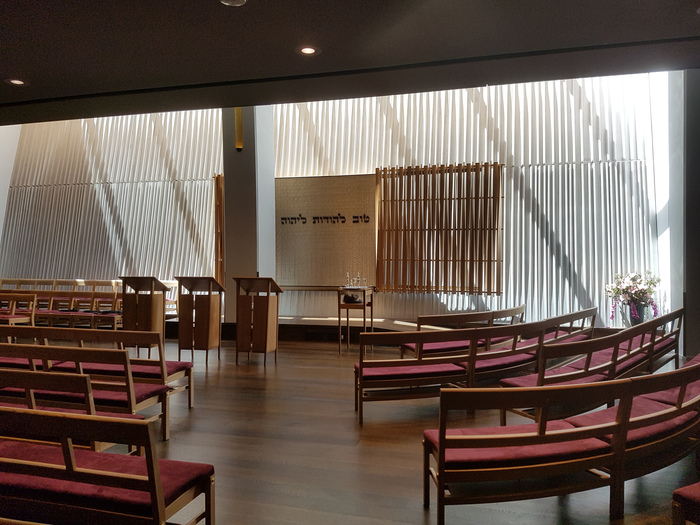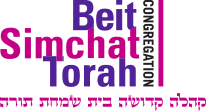
About the Cooperberg-Rittmaster Rabbinical Internship Program
The Cooperberg-Rittmaster Rabbinical Internship Program was established in 1994 by a gift by William Fern (renewed in 2000) in honor of fellow long-time CBST members and gay activists Irving Cooperberg, z”l, and Louis Rittmaster. Here you’ll find a complete list of past Cooperberg-Rittmaster Rabbinical Intterns, along with their current position.
By the 1990s, gay synagogues and havurot were an established—if sometimes controversial—feature of the American Jewish landscape. Out gay Jews were officially welcomed—albeit still with some reservations—by the Reform, Reconstructionist, and Conservative movements. In 1985, New York’s Beth Am Synagogue began an aggressive outreach program for gay and lesbian congregants, and other liberal urban synagogues soon followed suit. But there was there was still no gay-oriented rabbinical training, and out rabbis were still relatively rare—gay synagogues were hiring heterosexual as well as gay and lesbian rabbis. The result was a daunting “on-the-job training” that was often difficult for the rabbis as well as their gay congregants, all the more so in the face of the acute and unique demands for pastoral care resulting from the AIDS epidemic in the gay community.
In 1994, a gift by William Fern (renewed in 2000) in honor of fellow long-time CBST members and gay activists Irving Cooperberg, z’’l, and Louis Rittmaster enabled CBST to establish the first rabbinical internships at a gay synagogue. Now in its twenty-sixth year, the CBST Cooperberg-Rittmaster Rabbinical Internship program brings two students to CBST each academic year. They work directly under the supervision of Rabbi Kleinbaum, supporting CBST’s diverse minyanim, leading services, preparing drashot (sermons), teaching in CBST’s Lehrhaus Judaica adult education program, providing pastoral counselling to CBST’s members, and generally assisting with the operation of the synagogue.
Cooperberg-Rittmaster Rabbinical Interns are selected without regard to gender, sexual orientation, ethnicity, age, or movement affiliation (CBST itself is unaffiliated), and have included gay, lesbian, bisexual, transgender, and heterosexual men and women rabbinical students, ranging in age from mid-twenties to mid-forties, from all varieties of Jewish background—a diversity comparable to the diversity of CBST itself. Upon ordination, they carry their unique—and intense!—CBST experience to their work as congregational rabbis, chaplains, counselors, and community and social activists throughout the United States.
CBST’s first Assistant Rabbi, Rabbi Roderick Young was twice a Cooperberg-Rittmaster Rabbinical Intern, as were former Associate Rabbis, Rabbi Rachel Weiss and Rabbi Ayelet S. Cohen, who as well as being formerly CBST’s Associate Rabbi, now serves as a pastoral consultant and is the author of “Changing Lives, Making History“, a ground-breaking resource which tells the history and stories of our community.
The Cooperberg-Rittmaster Rabbinical Internships have also been highly successful in terms of the contributions made by the interns to the life of the synagogue, the impact of the experience on the interns’ careers, and the number of rabbis (40 as of 2020) which the program has delivered to the Jewish community who are able to deal positively with the needs of gay congregants and who have experienced the potential of the liberal synagogue to be a dynamic center of an intensely Jewish way of life.
